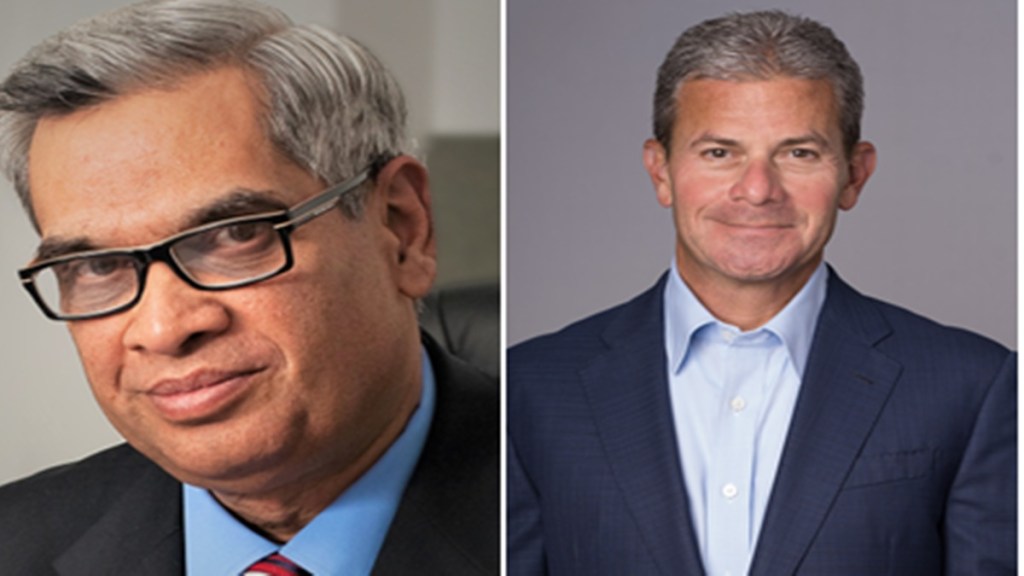Dentons has become the first foreign law firm to enter India by combining with New Delhi-based Link Legal. The new entity, Dentons Link Legal, will operate from five different cities across the country. Elliott Portnoy, global CEO, Dentons and Atul Sharma, executive chairman, Dentons Link Legal, speak to Geetika Srivastava about the advantages of the firm’s “polycentric” structure, the possibility of global peers entering the Indian legal market, and competition from legacy law firms. Excerpts:
Can you tell us more about the structure of the combination? How do you plan to integrate the cultures and expertise of both Dentons and Link Legal?
Also read: Record Mudra loan disbursements, UPI data and more: Amit Shah shares economic progress on Twitter
Elliott Portnoy: We’re very different from other law firms — we are polycentric. While that may sound like marketing speak, it is fundamental to who we are. In other law firms, decisions are made at headquarters. At Dentons, the most important decisions about the day-to-day business such as hiring, payments, client rates, and quality control will be made by the Indian office. The Indian team will have a voice in our advisory committee, in our global board, and in other governing bodies in order to benefit from its place in the global firm. Our decision-making and governance structures are such that the key authority and power rest within the local jurisdiction. That’s how we operate in over 80 countries, including the US, UK and Canada.
Atul Sharma: Dentons Link Legal is an Indian firm, therefore it is business as usual for the leadership of the erstwhile Link Legal. We take our own decisions and have financial freedom. We have, however, integrated it into the Dentons global system. We will continue to be an Indian firm with Indian lawyers running and controlling it but the experience we give to our clients is of one firm with access to more than 80 countries. It’s not that Dentons has acquired us, this is a combination that has helped us go global.
What distinctive offering do you intend to provide to your clients?
Elliott Portnoy: Up until our launch, India was one of the most important markets for Dentons’ clients where their needs were not being met by a law firm they had long trusted. They regarded their strategic and economic plans in the country as a priority and with this combination, we are now able to have clients across 82 countries rely on our five offices across India to meet their legal needs. It’s a game-changer. This means that overnight, we’ve become the only global law firm that can follow their client into the Indian market and have their needs met by elite Indian lawyers.
At the same time, Indian businesses are extending their reach around the world. They have long turned to the erstwhile Link Legal for their needs to be met, and earlier, this couldn’t happen with a single phone call. Now they can do so. This is a transformation for the two firms. As the first mover, it is very significant. What is also important for the Indian legal profession is that we are not sending lawyers that look like us from another country to practice law in the country. Rather, we are relying on leading lawyers who belong to these communities. Not every firm will do that, I guarantee you. Many will fly people in and out. That’s their strategy, not ours.
Will Indian lawyers be paid on a par with their foreign counterparts at Dentons?
Elliott Portnoy: The Indian team knows better than I do about how Indian lawyers should be paid, what rates can be charged for their work, and what the process should be for them to be made a partner. So it will make those decisions. These lawyers will have tremendous opportunities, being part of a global law firm, but the core business decisions are made in India by Indians.
Also read: Will MSMEs benefit from the declining Wholesale Price Index?
Do you expect your peers to join in soon, in light of the BCI move allowing foreign law firms to enter India?
Elliott Portnoy: I welcome the Bar Council of India’s decision on the liberalisation of the Indian legal industry. I do expect that our competitors will follow but they will enter the market differently than we have. They will perhaps send lawyers from other places and they may wish to open small offices on their own. For us, our model as the world’s largest law firm in India is to be owned, controlled and managed by leading Indian lawyers.
Atul Sharma: I’d like to add that we announced the combination before the new BCI regulations. We were fully compliant with all norms back then as well. We had the same wavelength about our structure and model, which was critical in taking this combination forward.
There are a number of legacy law firms in India that have been operating for several decades. How do you plan on competing with them?
Elliott Portnoy: We offer a distinctive and very valuable proposition that is different from the other firms. Others rely on referrals from best friends but we’re building a firm where we are partners with each other, where we benefit from each other’s success, and where we have an interest in providing work and client opportunities to each other. If we thought there was a better firm with whom to combine, we would have been in conversation with them. We think we combined with the best law firm in India because a combination requires vision, confidence, entrepreneurial zeal and a willingness to challenge the status quo, which is what we found in Link Legal.


